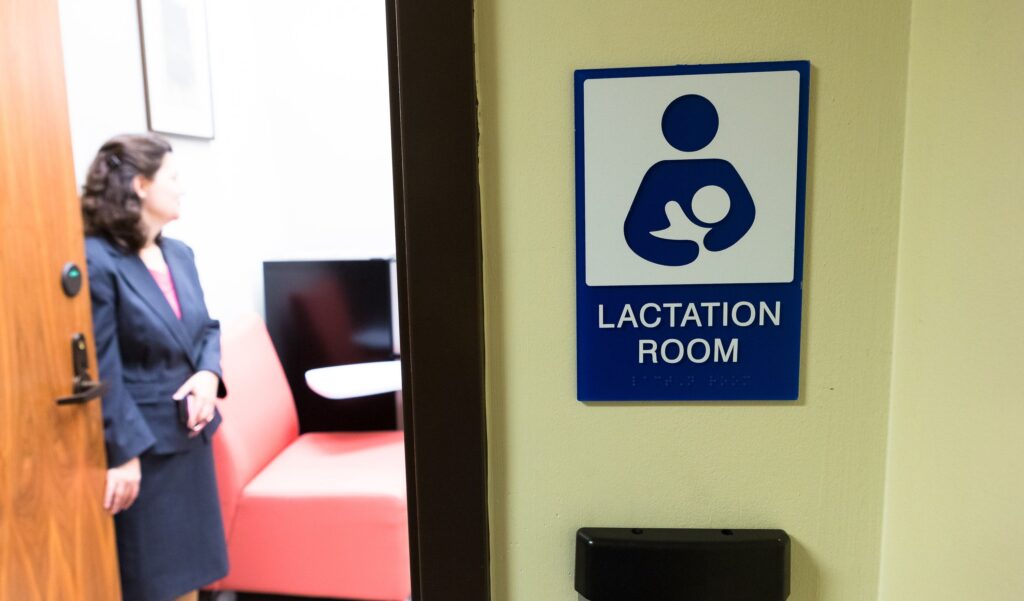
Beginning March 18, 2019, the New York City Human Rights Law will require employers with four or more employees to provide lactation space for breastfeeding employees. New amendments to the law expand upon the already-existing requirements under the New York State Labor Law to provide reasonable unpaid break time (or permit employees to use paid break time) to express milk in the workplace for up to three years following the birth of a child, and to “make reasonable efforts” to provide a room or other location, other than a restroom, to express milk in private.
New Lactation Room Requirements
The City law will now require covered employers to provide employees needing to express breast milk with access to a lactation room, as well as provide a refrigerator suitable for breast milk storage, “in reasonable proximity” to the employee’s work area. A lactation room is defined under the bill as “a sanitary place, other than a restroom, that can be used to express breast milk[,] shielded from view and free from intrusion[,] and that includes at minimum an electrical outlet, a chair, a surface on which to place a breast pump and other personal items, and nearby access to running water.”
Under the new law, employers are permitted to use the lactation room for other purposes. However, they must adhere to specific requirements if they chose to do so. These requirements include:
- The room must be used solely as a lactation room during times when an employee is using the room to express milk; and
- The employer must provide notice to other employees that the room is given priority for use as a lactation room.
The bill does provide for an exception for some employers. Under the new law, if providing a lactation room poses an undue hardship on the employer, then the employer may not be required to provide a dedicated lactation room. However, even in instances where there is an undue hardship, the employer is obligated to engage in a cooperative dialogue with employees to determine what, if any, alternate accommodations may be available. The employer is also required to provide a written final determination to employees at the conclusion of the cooperative dialogue process, identifying any accommodations granted or denied.
Lactation Room Policy
The law will also require covered employers to create and implement a written policy concerning their lactation room, which must be distributed to all new employees at the time they are hired. The written policy must state that employees have a right to request a lactation room and identify a process through which employees can request a lactation room. The process must:
- Specify the means by which an employee may submit a request for a lactation room;
- Require that the employer respond to a request for a lactation room within a reasonable amount of time not to exceed five business days;
- Provide a procedure to follow when two or more individuals need to use the lactation room at the same time, including contact information for any follow up required;
- State that the employer shall provide reasonable break time for an employee to express breast milk pursuant to Section 206-c of the New York State Labor Law; and
- State that if the request for a lactation room poses an undue hardship on the employer, the employer shall engage in a cooperative dialogue, as discussed above.
An employee who feels like her right to a designated lactation room has been violated should promptly consult an attorney. Wigdor LLP has extensive experience representing employees in connection with pregnancy and breastfeeding accommodation claims. If you believe that your right to an accommodation has been violated, or your employer retaliated against you for making an accommodation request, the attorneys at Wigdor LLP would be happy to speak with you about your rights.
| Hilary J. Orzick Associate |
| WIGDOR LLP 85 Fifth Avenue, New York, NY 10003 T: (212) 257-6800 | F: (212) 257-6845 |
| horzick@wigdorlaw.com wigdorlaw.com |